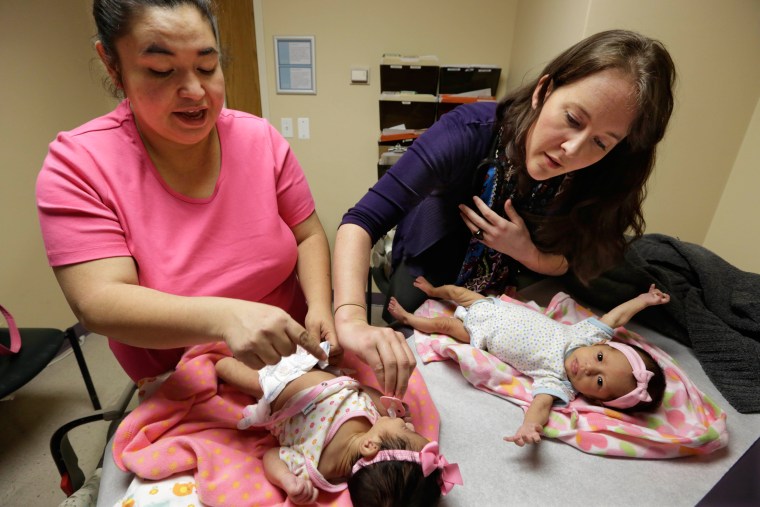Hispanic mothers are especially likely to have large families, as are black mothers, according to a new report by the Pew Research Center, though the numbers also show there has been a dramatic drop in large families among Latinas.
The report released Thursday found that 20 percent of Hispanic mothers ages 40-44 have four or more children, compared with 18 percent of black moms. Meanwhile, just 11 percent of white moms have four or more children, as do 10 percent of Asian moms.
Hispanic mothers ages 40-44 have the most children, with an average of about 2.6 children. Following closely behind are black mothers with an average of 2.5 children. White and Asian moms have the fewest children, averaging 2.3 children and 2.2 children respectively.
But the report also found that there has been a dramatic decline in the share of all mothers with four or more children since 1988, the first year for which detailed fertility numbers are available.
The decline has been most notable among Hispanics. An estimated 31 percent of Hispanic mothers had four or more children in 1988. That percentage dropped to 20 percent by 2014.
During that same time frame, the share of Hispanic moms with three children increased by eight percentage points, suggesting that many Hispanic moms were choosing to have three kids rather than four or more.
Hispanic women are also far less likely to remain childless. The report found that 17 percent of white women ages 40-44 don’t have children, compared with 15 percent of black women, 13 percent of Asian women and just 10 percent of Hispanic women. These numbers haven’t changed much since the late 1980s, according to the report.
The report also looked at fertility trends among highly educated women and found that not only are they more likely to have children, they’re also more likely to have bigger families than in the past.
Today, about 22 percent of women ages 40-44 with at least a master’s degree remain childless, down from 30 percent in 1994. And on average, 60 percent women with at least a master’s degree have two or more children, up from 51 percent in 1994.
